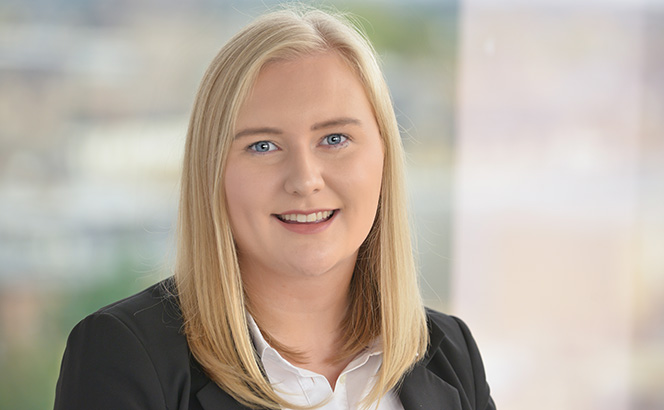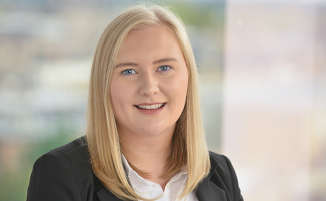Addleshaw Goddard trainee solicitor Lucy Nock (pictured) talks to Legal Business about why the way women are spoken to in the industry must change to achieve genuine equality.
Picture the scene.
A man in your team is finishing up for annual leave, handing matters over to people and explaining what needs to be covered while he is on holiday.
Someone asks if he is doing anything nice with his time off. He responds that his girlfriend booked a surprise trip for them to go to Paris. Naturally, this revelation sparks and excitement and curiosity. He is suddenly inundated with questions about their plans for the trip: which area they’re staying in, if they’ll see the usual landmarks, or if they have anything specific planned.
Then comes the question.
‘Do you think this is the time for… you know? For her to ask a certain question?’
Having a hard time picturing it? That is probably because you’ve never seen it before.
However, if you switch the roles around, you have a scene that will be all too familiar. These conversations are happening all around us; directing these questions at women in the workplace. This International Women’s Day, I am calling for us all to rethink the questions we ask women.
Don’t get me wrong, I’m very fortunate to be a trainee at a firm that champions women. I know that my gender will not preclude me from career progression and ultimately my success will come from my hard work and not from a ‘leg up’ by the old boys’ club. Addleshaw Goddard’s women’s network, The Vine, does some incredible work helping to grow and support women, including through ongoing mentorship, a tailored suite of development training and a ‘Gender Intelligence’ programme which aims to provide participants with knowledge on visible and invisible dynamics at play in the workplace.
Nevertheless, despite the significant positive changes in the legal profession and for women, I know that — in general — there still exists at least some sense of entitlement towards women and their personal life. Phrases like ‘the clock is ticking’ and ‘no ring on your finger, is everything okay?’ re-enforce the ideals of a bygone era. Questions asked around marriage and children so casually asked of women are never normally asked of men.
In order to achieve true gender parity, we need to address the fact that these conversations are still happening. Whether a woman chooses to get married or have children is her business and there must be no expectation that she must share this (even if asked with the best intentions, as is often the case). A man’s personal life is something we are not entitled to. Going forward, we must understand that we are not entitled to hers either.
Not all women can have children and that is a deeply personal and private thing they will most likely not want to share at work. Likewise, not all women want to have children. As a woman who is unafraid to say that I categorically do not want children, I have always been faced with responses such as ‘Well, you’ll change your mind eventually’. It feels like I have been trapped in a very specific box of a carer’ that I never wanted to be in and have been fighting to escape for years.
I am comforted by the fact that I work within a firm that really supports female empowerment, where issues such as this can be discussed, and conversations had in an open forum, all of which is essential in any modern workplace.
Through AG’s Vine network, the efforts of which have helped the firm maintain its longstanding position in The Times Top Employers for Women list, we have been able to create a space where people can discuss their experiences of gender, actively encouraging discourse around the challenges facing women and the workplace.
An example of this has been understanding and support around infertility. This is an issue which impacts 1 in 6/7 people, so is very likely to have touched many people in the firm, with some facing extremely difficult periods of treatment whilst trying to balance other aspects of their life and work.
Since the topic was first discussed in the Vine around one year ago, colleagues have taken forward a number of initiatives to make us a fertility-friendly employer, including training, webinars and an updated fertility treatment policy (doubling the amount of leave colleagues can take for treatment), all of which seek to raise awareness of issues around infertility and support colleagues throughout the treatment process.
International Women’s Day is observed not only to mark the breakthroughs women have made in history, but also to raise conversations on what still needs to be done. Women in the workplace and wider society may have made progress towards equality but are still fashioned into family bearing role they have never quite managed to shake. I challenge you to think carefully on these conversations you have with female colleagues, and not to ever ask a personal question you wouldn’t ask a man.













